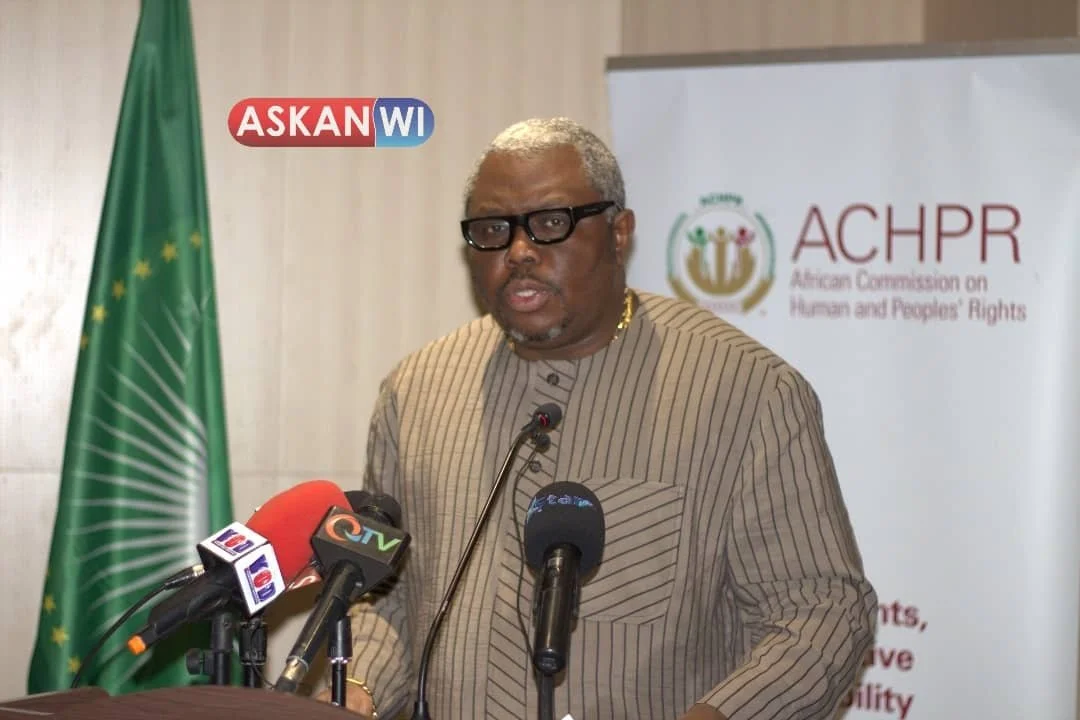"Data Saves Lives": ACHPR Urged to Strengthen Early Warning Systems for Human Rights
ACHPR Chairperson Hon. Rémy Ngoy Lumbu © Askanwi
By Fatoumata Jaiteh
Bijilo, The Gambia – 8th May 2025:
A pivotal side event held during the 83rd Ordinary Session of the African Commission on Human and Peoples' Rights (ACHPR) on 8th May 2025 spotlighted the critical role of early warning data in advancing human rights advocacy and governance across Africa. The session, hosted at the Sir Dawda Kairaba Jawara International Conference Centre in Bijilo, was co-organised by Rights and Liberties for Development (RLFD), the CHARM Africa Consortium, and the European Union’s System for an Enabling Environment for Civil Society (EU SEE).
Bringing together human rights practitioners, civil society organisations, and government representatives, the event centred on the theme: "The Significance of Early Warning Data for Advocacy with the African Commission and Governance in Africa."
In his keynote address, Hon. Remy Ngoy Lumbu, Chairperson of the ACHPR, emphasised the proactive power of timely and credible data.
“When there is credible and timely data, we can foresee emerging threats and act swiftly to prevent violations,” he said. “For human rights defenders to be effective, they must be equipped with early warning signs and relevant information.”
Hon. Lumbu reaffirmed the Commission’s responsibility not only to address human rights violations but also to actively prevent them. He described early warning systems as a critical bridge between data collection and concrete action, strengthening monitoring, advocacy, and policy responses.
A panellist further highlighted the African Commission’s threefold mandate—protection, promotion, and interpretation of human and peoples’ rights—and noted how these are amplified through partnerships with civil society.
“Without NGOs, much of this would have been an intergovernmental issue. Civil society brings critical grassroots intelligence and serves as the first alert mechanism,” the panelist stated.
The session also addressed the need for a safe and enabling environment for human rights defenders, particularly in conflict-affected and politically sensitive regions where signs of abuse often go undetected. Panellists called for greater collaboration between governments and civil society to ensure these early indicators can be identified and acted upon.
The event concluded with a collective call to action: increase investment in data systems, strengthen partnerships with local communities, and expand access to early warning tools to influence decision-making at both national and regional levels.

